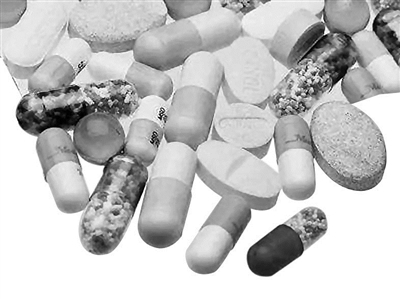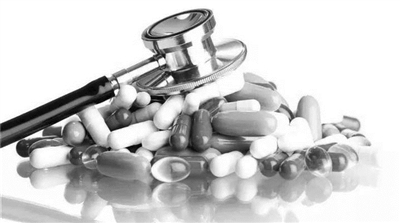Milk and rice soup are actually water for taking medicine. You have to understand the knowledge of taking medicine.


With the popularization of health knowledge, many of us know that we can’t take medicine with tea or juice. However, do you know that warm water is not a "universal water" suitable for all drugs, and some drugs will reduce their efficacy if they are matched with it? In addition, rice soup and milk instead of water can also be the "drug primer" for some drugs. Today, we will ask the pharmacist in the Pharmacy Department of Tsinghua Chang Gung Memorial Hospital to teach you how to take medicine in the safest and most effective way.
What is an empty stomach? It’s time to take medicine.
The drug instructions will indicate the time of taking the drug in the usage, so what is an empty stomach? Is it not an empty stomach as long as you have eaten? How to define before and after meals? Pharmacists in the Pharmacy Department of Tsinghua Chang Gung Memorial Hospital in Beijing give a correct concept of medication time here.
Taking medicine on an empty stomach: generally, 1-2 hours before meals and 2-3 hours after meals belong to an empty stomach, and general laxatives and tonics are suitable for taking on an empty stomach;
Taking medicine before meals: it means taking medicine within 15-30 minutes before meals, and drugs for promoting gastric motility or protecting gastric mucosa are recommended to be taken before meals;
Taking medicine after meals: it means taking medicine 15-30 minutes after meals. Most medicines can be taken after meals, mainly to reduce the irritation of medicines to gastrointestinal tract or increase the efficacy when taken with food.
Are there any medicines that are not suitable for warm boiled water? exactly
With the popularization of health knowledge, many of us know that when taking oral drugs, we should avoid taking them with tea, fruit juice soda and alcoholic drinks. Not only that, the pharmacist said that there is still a lot to pay attention to in this medicine.
Live bacteria medicine is not suitable to be taken with hot water, so it is advisable to drink warm milk 30 minutes after meals, which is beneficial to form a protective film in the stomach and prevent gastric acid from damaging the medicine.
Heat-clearing drugs or purgative drugs with severe effects are taken with rice soup, which can not only protect the stomach, but also improve the efficacy; However, syrup drugs, if taken with warm water, are easy to dilute the drugs and reduce their efficacy.
Besides, can the sustained-release dosage form be chewed or broken in half? Pharmacists said that most sustained and controlled release preparations achieve sustained release through membrane dissolution and osmotic pump technology, such as breaking, chewing or crushing drugs, which may easily lead to drug overdose and adverse reactions; Only a few sustained-release preparations achieve sustained-release effect through multi-unit and unique microcapsule technology. These preparations can be taken apart, but not chewed or crushed.
See the ingredients clearly, avoid repeated medication and overeating.
When we use drugs ourselves, we must see the ingredients clearly and avoid repeated use of drugs. For example, the main components of two drugs with different trade names may be the same, so we should check the drug components when using them to avoid overdose.
At the same time, some people think that the greater the dosage, the greater the effect and the faster the effect. In fact, this is very wrong. The dosage of a drug is determined through rigorous scientific experiments and a large number of clinical observations. The dosage of the drug is beyond the therapeutic dosage range, which can produce toxic and side effects, damage human health and endanger life.
It is worth mentioning that some people are ill and impatient, and wish they could not take medicine as soon as possible. They often seek medical treatment from all directions or blindly buy a variety of drugs, which leads to the phenomenon of disorderly use of drugs. Due to the interaction between drugs and the combination of multiple drugs, the incidence of adverse reactions will increase exponentially. Therefore, we must be cautious about the combination of multiple drugs, which must be determined by doctors according to the needs of the disease, and do not blindly use drugs without authorization.
"Use with caution" is not that it cannot be used.
We usually keep some standing medicines at home in case of emergency. Pharmacists in the Pharmacy Department of Tsinghua Chang Gung Memorial Hospital said that when using drugs, they should read the instructions when purchasing drugs, and doctors should follow the prescription when prescribing drugs. For those who are not symptomatic, it depends on the indication of the drug. If you buy over-the-counter drugs in a pharmacy, you must choose the appropriate drugs according to the indications stated in the instructions.
If you are in a hospital and take the medicine according to the prescription prescribed by the doctor, you should follow the doctor’s advice when taking the medicine. In fact, prescription is not only a voucher for taking medicine, but also a medical document for patients to use medicine. At present, many hospitals are equipped with self-printing equipment, so that patients can print the corresponding prescription and use drugs according to the prescription.
Experts especially advise not to take "taboos" seriously. Children, the elderly, pregnant women and patients with poor heart, liver and kidney function should be cautious when using drugs, because these people have poor drug metabolism function and high possibility of adverse reactions. In addition, drugs labeled "use with caution" for specific groups are not unusable. But to remind you to be careful before using it. Be aware of adverse reactions: if you feel serious discomfort during medication, you must stop taking the drug in time.
In addition, the "storage method" of drugs is directly related to the effect of drugs and the stability of ingredients. Pay attention to whether to use cold storage, whether to avoid light, and how to store it.
Pay more attention to these five drugs for the elderly.
An expert from the Pharmacy Department of Tsinghua Chang Gung Memorial Hospital explained that the elderly need to pay more attention to medication safety because of the decline of liver and kidney function, the slow elimination of drugs and the high sensitivity of related receptors in the central nervous system. Especially the following five drugs, pay more attention when taking them.
Digitalis drugs, including digoxin, cedilanid, strophantoside K, etc. Because the elderly excrete these drugs slowly, it is easy to cause drugs to accumulate in the body and produce toxicity. Therefore, when using these drugs, the dosage should be reduced, and the blood drug concentration should be monitored if necessary.
Anticoagulants, including oral anticoagulants and injections, are at risk of bleeding, so it is necessary to standardize the use of such drugs, take them on time according to the doctor’s advice, and monitor the coagulation function regularly;
Diuretics have many potential adverse effects on the elderly, and it is easy to cause hyponatremia if used improperly. If it is not corrected in time, the risk rate of adverse events such as postural dizziness, hypotension and falls will increase, so it is necessary to take it according to the doctor’s advice according to the dose course.
A small dose of sedative and hypnotic drugs can produce therapeutic effects. At the same dose, the risk of adverse reactions in the elderly is higher than that in the young and middle-aged people.
Laxatives such as phenolphthalein and rhubarb can easily cause colon spasm and make defecation more difficult. In addition, long-term use of laxatives may also lead to the lack of calcium and vitamins in the body, so it should be used with caution. If necessary, glycerol suppository, kaiselu and rectal lubricants can be selected. Old people with constipation should adjust their diet, strengthen proper exercise and develop the habit of defecation regularly.
Tips for drug safety
Know drugs: Before taking drugs, you should know the name, function, side effects or risks of the drugs used and how to keep them.
Taking drugs: when taking drugs, you should first know the dosage and whether there are any contraindications, and stop using them in time if you feel unwell.
Adding drugs: if you need to add drugs, you should consult a doctor to prevent multiple drugs from interacting and causing harm.
Check drugs: keep the list of drugs and check drugs regularly to prevent taking expired, symptomatic or ineffective drugs.
Stop using drugs: Do you need to stop using drugs? When to stop using drugs? Please follow the doctor’s advice or drug instructions. If you feel unwell, seek medical advice in time. (Reporter Li Jie)